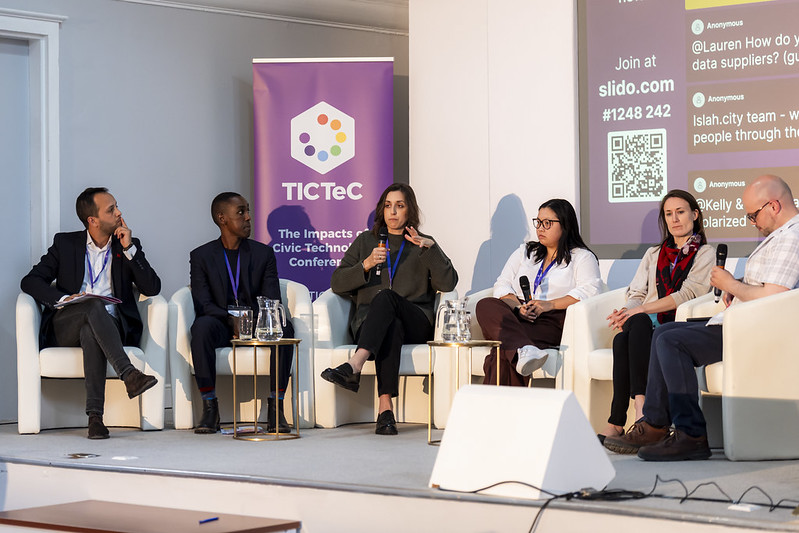TICTeC: The People Crafting the Tech Infrastructure of Democracy

In the heart of London, the TICTeC conference - held June 12 and 13 - was a rare opportunity to take a break from the grind and reflect on the amazing and inspiring work of civic technologists around the world. Hosted by MySociety and supported by the National Endowment for Democracy, this event was the first time the conference was held in-person since the COVID-19 pandemic forced most such convenings online. Representatives from the global civic technology community forged new relationships, shared tools for democratic engagement, and explored how emerging technologies are reshaping the civic technology landscape.
NDI’s participation reflects our commitment to a critical message: democracy doesn’t end at the ballot box. Civic technologists play a particularly important role in supporting government service delivery and reinforcing feedback loops between government and citizens. For example, Code for Pakistan’s use of Ushahidi to help the government more effectively allocate aid after floods was a critical and timely application of open-source technology that directly impacted people’s lives. Since Ushahidi is open-source, the Code for Pakistan team was also able to develop a connection to the popular WhatsApp messaging tool, broadening the reach of the initiative. In another example, Abdellatif Belmkadem of the National Institute of Innovation and Advanced Technology of Morocco explained how using Fix My Street in Casablanca is not just facilitating infrastructure repairs, but fundamentally reshaping the social contract between government and citizens. This project is also furthering the development of the Fix My Street open-source project by exploring machine-learning based approaches to categorizing issue reports. The session, co-led by NDI’s Maurice Sayinzoga, DemTech Program Director, underscored that technology alone will not “make democracy work” and shared practical steps for engaging government stakeholders, navigating bureaucratic hurdles, and demonstrating the tangible benefits of technology tools. These examples demonstrate how technology can connect citizens’ needs with government action, but in both cases government buy-in is essential to ensure the tools actually help solve real-world issues, rather than just contributing to a backlog of unresolved complaints.
NDI also showcased innovative approaches to civic tech in closed and conflict affected contexts. Sarah Moulton, NDI Deputy Director for Technology and Democracy, moderated a panel discussion with Jesper Frant, NDI Senior Technology Project Manager, and representatives from two of NDI’s civic technology partners, Pavel Liber and Isabel Hou. The discussion centered on how tech tools can help to build community around democratic principles, despite seemingly insurmountable headwinds. Pavel shared his experience building an innovative online platform, New Belarus, that enables Belarusians to build a free Belarusian community online. Isabel shared her decades-long experience growing an active civic technology community in Taiwan. g0v holds weekly hackathons and develops tools to, among other things, protect the integrity of online information, and visualize government budget data. They recently completed a “Civic Tech Project & Community Handbook” which describes their approach to building community around civic technology. Jesper shared lessons learned for working with civic technology in countries with weak digital infrastructure, low tech literacy, and high security risk, emphasizing a human-centered approach and a commitment to “do no harm.”
While the challenges in many of these contexts can often seem insurmountable, civic technology is about empowering citizens and enhancing the mechanisms of democracy. It’s about ensuring that every voice is heard and that governments are responsive to their citizens. NDI is committed to harnessing the potential of civic tech to make democracy more dynamic, participatory and effective.
